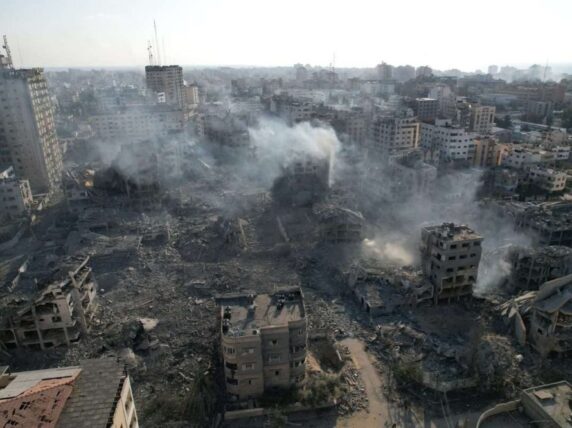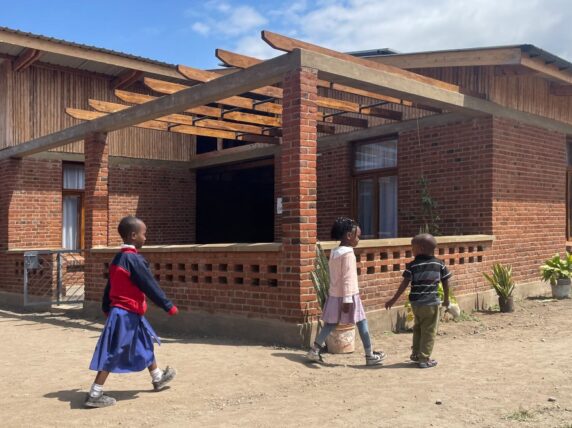Safety and security of aid workers: a priority for the UK’s International Development Strategy and humanitarian policy review
As the British government reviews its International Development Strategy (IDS) and humanitarian policy, it is imperative that we address the safety and security challenges humanitarian agencies face.
Insecurity is one of the main barriers to humanitarian access. Safety and security threats compromise longer-term development efforts and other FCDO priorities, including girls’ education and climate resilience. Aid workers face many different threats, ranging from kidnapping and shooting to abuse. These matter, not only because they disrupt an operations’ continuity -impacting people’s access to life-saving aid and protection- but they also put at risk aid workers’ lives.
The situation playing out in Afghanistan highlights that the British government, as a major aid donor, has ethical and practical responsibilities to its partner organisations. What are those responsibilities? And how could the FCDO’s wider international development and humanitarian strategies support aid worker safety and security? In answer to these questions, we should take into account the following guidelines:
1. Ensure that partnerships consider safety and security measures
While discussing SRM with an international partner recently, I was told, ‘you’re expected to get on with that sort of thing on your own.
Fares Al-Saleh, SARD
Sadly the above quote from one local NGO in Syria has been echoed by many others in other contexts. As efforts to ‘localise’ aid increase, we need to acknowledge that local NGOs, while primarily taking on the responsibility for aid operations, also face the highest security risks. Incidents involving international aid workers often make the headlines. However, the reality is that in 2020 alone, 95% of the total number reported as victims of incidents were national staff. The real numbers are likely to be worse, since many incidents concerning national NGO partners go unreported. In 2020, GISF’s research, supported by CAFOD and other partners, highlighted that most local NGOs were left alone to deal with security risks in many NGO partnerships.
Subscribe to our newsletter
Our weekly email newsletter, Network News, is an indispensable weekly digest of the latest updates on funding, jobs, resources, news and learning opportunities in the international development sector.
Get Network NewsLooking forward, all grants and partnership agreements between the FCDO and international or local humanitarian organisations should include specific provisions for security risk management. When the FCDO funds international actors, knowing they will work with local partners to implement operations, clear sections must explain how partners will share risk.
2. Promote sustainable and equitable funding for security
Humanitarian organisations often struggle to obtain adequate funding to manage their security. In many cases, a lack of dedicated budget lines means that organisations don’t ask for security funding. In other cases, organisations don’t have the flexibility necessary to adapt to changes in the security context. It is encouraging that the FCDO has declared its willingness to fund humanitarian organisations’ demands for security. Through the IDS and humanitarian review, this commitment needs to be translated into specific parameters for policy, funding, and partnership contracts.
When it comes to national NGO partners, the FCDO must increase its investment in longer-term capacity-strengthening, preparedness, and local leadership. This will enable safer, locally-led crisis response. The UK has funded longer-term support to the capacity-strengthening of national NGOs through mechanisms like the LIFT Fund in Myanmar, for example. These kinds of mechanisms should be scaled-up, embedding support to safety and security within a more comprehensive, holistic approach to capacity strengthening.
3. Prioritise safe humanitarian access in diplomatic efforts
Over the past year, FCDO officials have raised issues, through diplomatic channels, concerning access and the protection issues of aid workers in crises such as in the Tigray and Myanmar. As part of these efforts, the UK must support humanitarians – including local NGOs – to bring their insights into relevant processes, such as FCDO country-specific policy dialogue or UN Security Council deliberations. The increased use of technology through Covid-19 enables dialogue between decision-making headquarters and the staff and partners of aid agencies. This needs to be systematised.
Another issue is the extent to which violence against aid workers generates consequences for the UK’s longer-term development cooperation with governments involved. In some contexts, violence perpetrated by states against their civilians (including attacks on aid workers and barriers to humanitarian access) have triggered donors to suspend longer-term development funding. Whilst this is contextual, the government could signal that persistent violations will trigger practical consequences; thereby backing up diplomatic demarches by ministers or envoys with action.
4. Address impunity for violence against aid workers
All too often, those committing violence against aid workers are never prosecuted for their crimes. This climate of impunity contributes to spiralling insecurity and lawlessness. It worsens the situation, not just for humanitarian agencies, but also for the population in the affected contexts. To ensure that perpetrators are convicted for their crimes and aid workers have access to justice, there needs to be more investment in and collaboration with international judiciary systems, national authorities, as well as the newly established Special Envoy for the Protection of the Humanitarian Space. Here, the UK government could also learn from its investment in efforts against impunity for conflict-related sexual violence. For example:
- The lessons of prioritising a survivor centred approach to these efforts – with particular attention to the safety and protection of survivors.
- The importance of having a broad coalition of donor governments and states, affected by crises, to support these efforts together.
The situation in Afghanistan, Tigray and Myanmar now show that the British government, the British public and British NGOs are committed to helping people around the world in times of crisis. However, it is in contexts where needs are greatest that aid workers face the most risks. As the government reviews its priorities for its international development and humanitarian policy, it must address the safety and security issues of those delivering assistance
Category
News & Views



